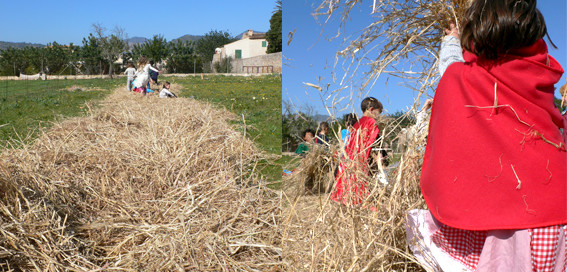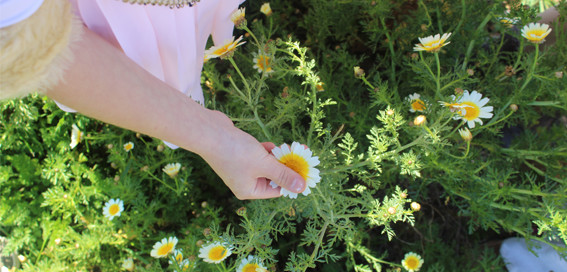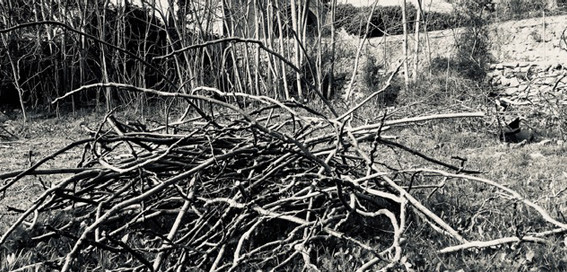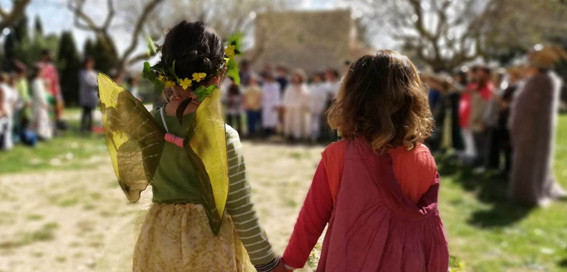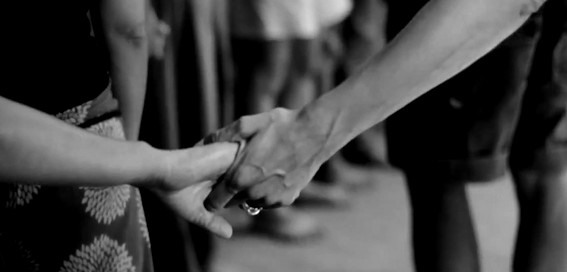HISTORY OF A BULLET OF STRAW
On Friday, during the Almond Blossom Festival, a large round bullet of meadow grasses awaited us in the forest. The boys and girls rolled it to the lowest part of the field and discovered how much fun it was to push it, climb on top, and balance as the bullet advanced. They then developed it by creating a yellow path of dried herbs that they used to roll over and throw straw at each other. This dry grass path, which will be protected with a fence, will enrich the earth of the forest. And from the seeds it contains, herbs and flowers will be born. With the rains, the straw will decompose contributing organic matter to the earth, future food for the forest. If it rains enough, during this spring and in the following year, various types of grain (rye, wheat, barley) and flowers such as wild marigold, daisies or mustard could be born.

